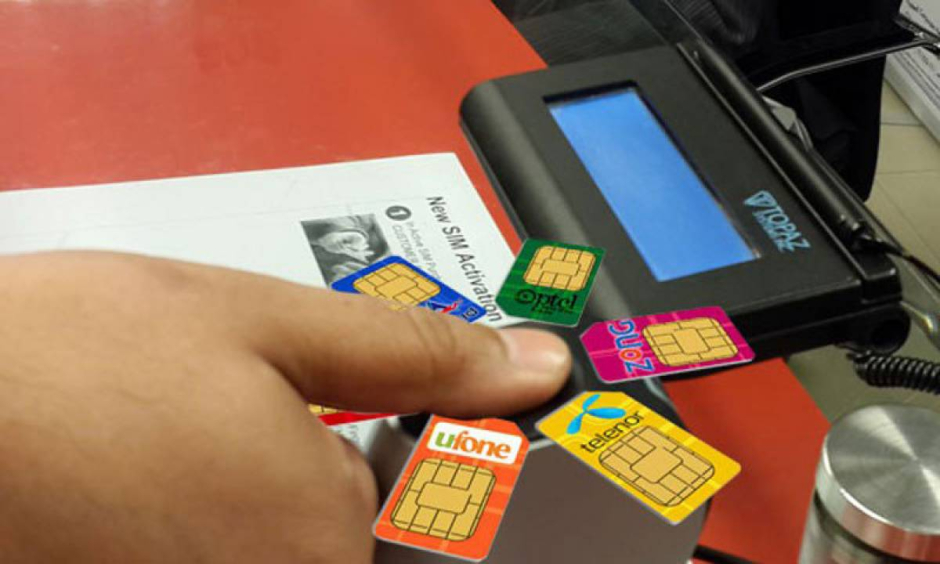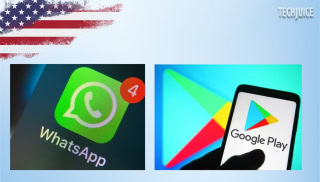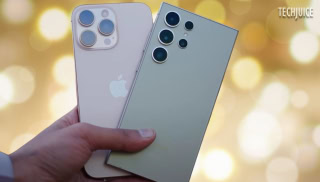Pakistan Telecommunication Authority (PTA) has replaced old biometric verification with Multi Finger Biometric Verification System (MBVS) to stop the issuance of illegal SIM cards.
On Friday, a contract was signed between National Database and Registration Authority (NADRA) and telecom operators at PTA headquarters. Telecom companies will use the Multi-Finger Biometric Verification System (MBVS) to verify users’ identities before issuing a new SIM. Taking to Twitter, Pakistan Telecom Authority (PTA) announced that development.
The old biometric verification devices used by the network providers Jazz, Ufone, Telenor, and Zong have been upgraded to meet the requirements of the new system. Officials said that MBVS will make it impossible to get a new SIM card using fake fingerprints.
The NADRA chairman said that the new system has the immense potential to keep fraudsters and scammers away. The updated system will randomly ask for random impressions of two separate fingers to curb the rise of scam incidents.
Before providing a new SIM, telecom providers will now utilize a Multi-Finger Biometric Verification System (MBVS) to confirm consumers’ identities. At PTA headquarters on Friday, NADRA signed a deal with the telecom provider
Maj. Gen. Amir Azeem Bajwa (R), Chairman of PTA, Chairman of NADRA, Mr. Muhammad Tariq Malik, PTA Member Dr. Khawar Siddique Khokhar, Additional Director General at FIA, and several telecom executives were present for the signing ceremony.
PTA Chairman praised NADRA and telecom efforts to upgrade their systems to MBVS. Additionally, he said that the new approach will help to stop the selling of fake SIM cards. All network provider sales offices, including Jazz, Ufone, Zong, Telenor, and others, have to replace their biometric verification equipment. Through NADRA and cellular mobile operators, the BVS devices available for purchase meet the new system’s standards (CMOS).
The new biometric verification method will make it difficult for scammers to get SIM cards using fake fingerprints. Before providing a duplicate or new SIM card, the new system will need numerous fingerprints for authentication reasons (instead of only a thumb imprint as in the old systems). To reduce human involvement in the process, the system will randomly request two imprints of each finger.
The authorities come up with an initiative as scammers managed to bypass the former biometric system designed to identify users before issuing SIM cards. With the new system, it will be impossible to get a new SIM card using fake fingerprints, the press release said, mentioning that it will require impressions of multiple fingers for authentication for a new SIM card. To curb the rise of scam incidents, the updated system will ask for impressions of two separate fingers randomly.
The new initiative was launched as thousands of Pakistanis fall prey to slick-talking scammers who tricked them and deprive them of their hard-earned money. Scammers used fake identities to trick people by sending fake messages, emails, and phone calls.
Last year, more than 23,000 cases regarding financial crimes were reported while federal investigators recovered more than 60,000 fake activated SIMs, around 7,000 Silicon thumb impressions.
“The MBVS will not only eliminate silicon-based fingerprints used for issuance of mobile phone SIMs but also hamper attempts to purchase The new system will combat fake SIM issuance, ID fraud, protect privacy, and strengthen Pakistan’s national security,” he added.
It is pertinent to mention that BVS was implemented in 2014 to offer secure online biometric verification for each SIM-related transaction, as well as assigning a unique sale ID and logging each transaction so that the person responsible for misuse is identifiable.
The PTA, NADRA, and CMO teams have worked tirelessly to make MBVS a reality. However, MBVS has been introduced to further improve the system and address issues with SIMs obtained through illegal means. ?The new verification system will aid in the elimination of the use of SIM cards obtained illegally in fraudulent financial transactions and other criminal activities.
The enhanced system will not only eliminate silicon-based fingerprints used for the issuance of mobile phone SIMs but also hamper attempts to purchase illegal Sims.
Read More:












